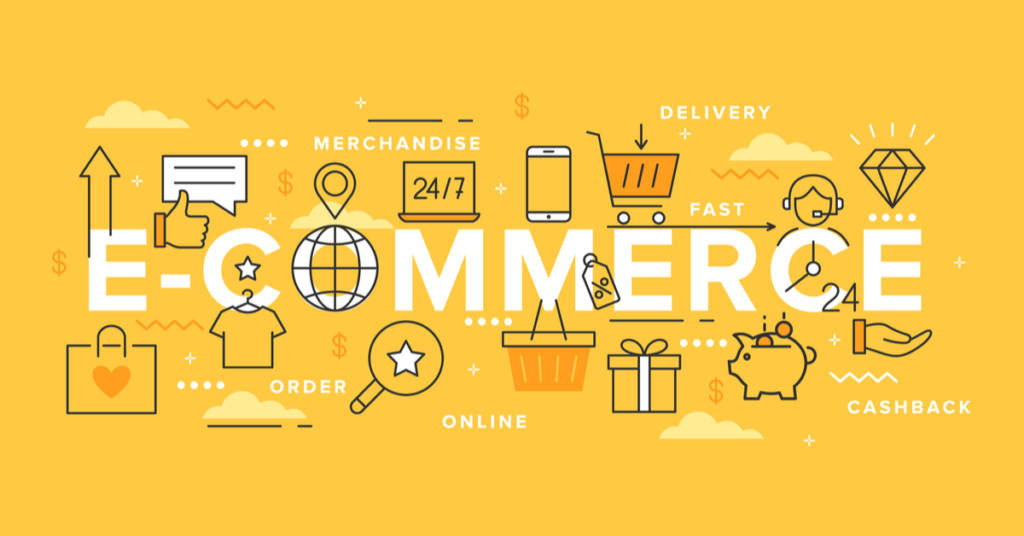The Cost of Setting Up a Small Business in Nigeria 2025
Starting a small business in Nigeria is one of the most exciting and rewarding journeys you can embark on. Whether you’re dreaming of becoming the next big entrepreneur or simply looking to create an additional income stream, 2025 is a great year to take that leap. But let’s be real—starting a business in Nigeria comes with its own unique challenges, especially when it comes to costs.
At The Price, we understand how important it is to have accurate and up-to-date information before making any financial decisions. That’s why we’ve put together this comprehensive guide to help you understand the cost of setting up a small business in Nigeria in 2025. From registration fees to equipment costs, marketing budgets, and even tips on how to save money, we’ve got you covered.
So, grab a cup of tea (or zobo, if that’s your thing), sit back, and let’s dive into everything you need to know about starting a small business in Nigeria in 2025.
Why Start a Small Business in Nigeria in 2025?
Before we talk about costs, let’s quickly discuss why starting a small business in Nigeria is a great idea in 2025:
- Growing Economy: Despite the challenges, Nigeria’s economy is growing, and there are opportunities in various sectors like tech, agriculture, fashion, and e-commerce.
- Youth Population: With over 60% of the population under 25, there’s a huge market for innovative products and services.
- Digital Revolution: The rise of social media, mobile banking, and e-commerce platforms has made it easier than ever to start and run a business.
- Government Support: Initiatives like the Central Bank of Nigeria’s (CBN) loans for small businesses and the Bank of Industry (BOI) grants are making it easier for entrepreneurs to access funding.
Step-by-Step Guide to Setting Up a Small Business in Nigeria
Starting a business in Nigeria involves several steps, each with its own costs. Here’s a breakdown of what you need to do and how much it will cost you in 2025:
1. Business Idea and Planning
Before you spend any money, you need a solid business idea and a plan. Ask yourself:
- What problem am I solving?
- Who is my target audience?
- What makes my product or service unique?
Cost: ₦0 – ₦50,000 (if you hire a consultant to help you refine your idea).
2. Business Name Registration
The first official step is registering your business name with the Corporate Affairs Commission (CAC). This is mandatory for all businesses in Nigeria.
- Business Name Registration: ₦10,000 – ₦20,000
- CAC Incorporation (for small businesses): ₦50,000 – ₦100,000
Tip: If you’re on a tight budget, start with a business name registration. You can always incorporate later as your business grows.
3. Rent or Workspace
Depending on the type of business you’re starting, you may need a physical location. Here’s a rough estimate of rental costs in 2025:
- Shop in a Market (Lagos): ₦200,000 – ₦500,000 per year
- Office Space (Lagos): ₦300,000 – ₦1,000,000 per year
- Co-working Space: ₦50,000 – ₦100,000 per month
Alternative: If your business can operate online, you can save on rent by working from home or using a virtual office.
4. Equipment and Tools
The equipment you need will depend on your business type. Here are some examples:
- Smartphone (e.g., UK-used iPhone 11): ₦180,000 – ₦250,000
- Laptop: ₦150,000 – ₦300,000
- POS Machine: ₦20,000 – ₦50,000
- Industrial Equipment (e.g., sewing machine, generator): ₦100,000 – ₦500,000
Tip: Buy quality equipment that will last, but don’t overspend. You can always upgrade later.
5. Inventory or Supplies
If you’re selling physical products, you’ll need to stock up on inventory. The cost will depend on your business type:
- Fashion Business: ₦100,000 – ₦500,000
- Food Business: ₦50,000 – ₦200,000
- Tech Business: ₦200,000 – ₦1,000,000
Tip: Start small and only stock what you can sell within a few months to avoid waste.
6. Marketing and Branding
No matter how great your product or service is, you need to let people know about it. Here’s what you’ll spend on marketing in 2025:
- Social Media Ads: ₦10,000 – ₦50,000
- Flyers and Posters: ₦5,000 – ₦20,000
- Logo Design: ₦5,000 – ₦20,000
- Website Development: ₦50,000 – ₦200,000
Tip: Focus on social media marketing, as it’s cost-effective and reaches a wide audience.
7. Miscellaneous Costs
Don’t forget to budget for these additional expenses:
- Transportation: ₦20,000 – ₦50,000
- Utilities (Internet, Electricity): ₦10,000 – ₦30,000
- Legal Fees (if needed): ₦50,000 – ₦100,000
Total Estimated Cost of Setting Up a Small Business in Nigeria in 2025
Based on the breakdown above, here’s a rough estimate of the total cost:
- Low Budget: ₦500,000 – ₦1,000,000
- Medium Budget: ₦1,000,000 – ₦2,000,000
- High Budget: ₦2,000,000 and above
Note: These figures are estimates and may vary depending on your location, business type, and personal preferences.
Tips for Reducing Startup Costs
Starting a business doesn’t have to break the bank. Here are some practical tips to save money:
- Start Small: Focus on one product or service and expand as you grow.
- Buy Used Equipment: Consider buying second-hand equipment or tools to save money.
- Leverage Free Tools: Use free or low-cost tools like Canva for design, Google Workspace for email, and social media for marketing.
- Bootstrap: Use your savings or personal funds instead of taking a loan to avoid debt.
- Network: Partner with other entrepreneurs to share resources and reduce costs.
Common Challenges and How to Overcome Them
Starting a business in Nigeria isn’t a walk in the park. Here are some common challenges and how to tackle them:
- Lack of Funding: Apply for grants, loans, or crowdfunding to raise capital.
- Power Supply: Invest in a generator or solar inverter to keep your business running.
- Competition: Differentiate your business by offering unique value or better customer service.
- Marketing: Focus on building a strong online presence through social media and SEO.
Business Ideas for 2025
To help readers who are still brainstorming, let’s include a list of trending small business ideas for 2025:
- E-commerce Store:

Sell products like fashion items, gadgets, or home goods online. Platforms like Jumia, Konga, and Instagram make it easy to start.
2.Agribusiness:

Venture into snail farming, poultry, or vegetable farming. The demand for organic produce is on the rise.
3.Tech Services:

Offer web design, app development, or digital marketing services.
4.Food Business:

Start a small restaurant, bakery, or food delivery service. Nigerian classics like puff-puff, jollof rice, and small chops are always in demand.
5.Fashion and Tailoring:

Create custom outfits, sell ready-to-wear clothes, or start a fashion accessories line.
6.Health and Wellness:

Sell fitness plans, organic skincare products, or supplements.
7.Education and Tutoring:

Offer online or offline tutoring services in subjects like math, English, or coding.
Tip: Choose a business idea that aligns with your skills, passion, and market demand.
Funding Options for Small Businesses
Let’s dive deeper into how to fund your business in 2025:
- Personal Savings: The most common way Nigerians start businesses. Save a portion of your income until you have enough to start.
- Family and Friends: Borrow from loved ones at little or no interest.
- Government Grants: Apply for grants from organizations like the Bank of Industry (BOI) or the Central Bank of Nigeria (CBN).
- Loans: Consider loans from microfinance banks or online lenders like FairMoney or Branch.
- Crowdfunding: Use platforms like GoFundMe or Kickstarter to raise funds from the public.
- Angel Investors: Pitch your business idea to wealthy individuals who are willing to invest in startups.
Tip: Always have a solid business plan before approaching investors or applying for loans.
Legal Requirements for Small Businesses
Let’s break down the legal requirements for starting a business in Nigeria:
- Business Name Registration: Register your business name with the Corporate Affairs Commission (CAC).
- Tax Identification Number (TIN): Obtain a TIN from the Federal Inland Revenue Service (FIRS).
- Business Permits: Depending on your business type, you may need permits from local or state governments.
- Health and Safety Certificates: If you’re in the food or health industry, you’ll need certifications from relevant agencies.
- Intellectual Property Protection: Register your trademarks, patents, or copyrights to protect your brand.
Tip: Hire a lawyer or consultant to help you navigate the legal process.
Marketing Strategies for Small Businesses
Let’s provide more detailed marketing tips for small business owners:
- Social Media Marketing: Use platforms like Instagram, Facebook, and TikTok to promote your business. Post regularly, engage with followers, and run targeted ads.
- Content Marketing: Start a blog or YouTube channel to share valuable content related to your industry.
- Email Marketing: Collect email addresses from customers and send them newsletters, promotions, and updates.
- Influencer Marketing: Partner with influencers in your niche to promote your products or services.
- Referral Programs: Offer discounts or rewards to customers who refer others to your business.
Tip: Track your marketing efforts to see what works and adjust your strategy accordingly.
Technology Tools for Small Businesses
Let’s include a list of tools and apps that can help small business owners in 2025:
- Accounting: Use tools like QuickBooks or Wave to manage your finances.
- Project Management: Try Trello, Asana, or Monday.com to organize tasks and projects.
- Communication: Use WhatsApp Business, Slack, or Microsoft Teams to stay in touch with your team.
- E-commerce Platforms: Sell online using Shopify, WooCommerce, or Selar.
- Social Media Scheduling: Plan and schedule posts with tools like Buffer or Hootsuite.
Tip: Many of these tools offer free plans or trials, so you can test them before committing.
Real-Life Case Studies
Let’s include a few real-life examples of Nigerians who started successful small businesses:
- Chioma’s Fashion Brand: Chioma started with ₦200,000, selling Ankara dresses on Instagram. Within two years, she grew her business to a physical store in Lagos.
- Emeka’s AgriBusiness: Emeka invested ₦500,000 in snail farming and now supplies snails to restaurants across the South-East.
- Aisha’s Food Delivery Service: Aisha started with ₦100,000, delivering homemade meals to offices in Abuja. She now has a team of five delivery riders.
Tip: Learn from these examples and adapt their strategies to your own business.
Common Mistakes to Avoid
Let’s highlight some common mistakes new entrepreneurs make and how to avoid them:
- Lack of Planning: Always have a detailed business plan before starting.
- Overestimating Demand: Start small and test the market before scaling up.
- Ignoring Customer Feedback: Listen to your customers and improve your products or services based on their feedback.
- Poor Financial Management: Keep track of your income and expenses to avoid running out of cash.
- Trying to Do Everything Alone: Delegate tasks and hire help when needed.
Tip: Learn from your mistakes and keep improving.
Resources for Small Business Owners
Let’s provide a list of resources to help readers learn more:
- Books:
- The Lean Startup by Eric Ries
- Rich Dad Poor Dad by Robert Kiyosaki
- Start Small, Finish Big by Fred DeLuca
- Websites:
- Small Business Administration (SBA)
- Entrepreneur.com
- Nairaland Business Forum
- Podcasts:
- The Side Hustle Show
- How I Built This by Guy Raz
- The Smart Passive Income Podcast
- YouTube Channels:
- GaryVee
- Graham Stephan
- Nigerian Entrepreneur TV
Tip: Dedicate time to learning and improving your skills as a business owner.
Future Trends to Watch in 2025
Let’s discuss some trends that could impact small businesses in 2025:
- Increased Use of AI: Artificial intelligence will help businesses automate tasks and improve customer service.
- Sustainability: Consumers are becoming more eco-conscious, so consider offering sustainable products or services.
- Remote Work: More businesses will operate online, reducing the need for physical office spaces.
- Cryptocurrency: Some businesses may start accepting crypto payments as digital currencies gain popularity.
Tip: Stay ahead of the curve by adapting to these trends early.
CONCLUSION
Starting a small business in Nigeria in 2025 is both an exciting and challenging journey. While the costs can seem overwhelming, proper planning and budgeting can make the process much smoother.
At The Price, we’re here to help you every step of the way. Whether you’re looking for price comparisons, purchasing guides, or money-related tutorials, we’ve got your back.
So, what are you waiting for? Take that first step today and turn your business dreams into reality. Remember, every big business start.


Leave a Comment